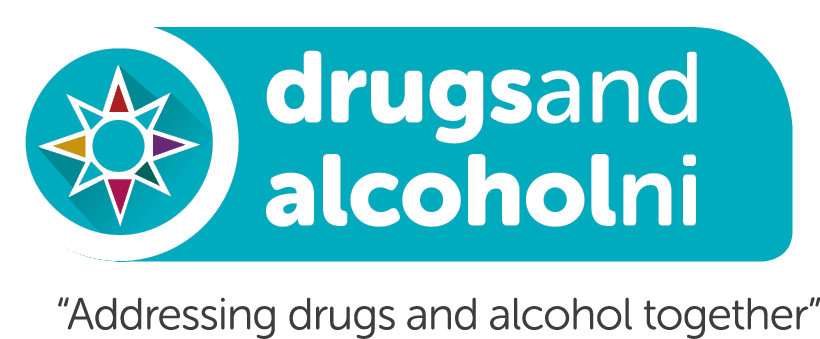According to the NI Health Survey (early results) for 2020/21, 81% of adults aged 18 years and older who were surveyed drink alcohol. This was higher than the 2019/20 figure of 77%. Of the 81% of adults who drink alcohol, 58% of drinkers reported to drink at least once a week in 2020/21. In 2020/21, 83% of males were drinkers. While this was similar to the statistics for 2019/20, female drinkers have saw an increase from 73% to 80%. Many of the adults who responded to the survey have not changed their drinking patterns since the outbreak of the coronavirus pandemic. However, 22% reported drinking more and 29% reported drinking less.
In comparison with the Health Survey data, the 2020/21 results indicated that adults smoking cigarettes has reduced from 17% (in 2019/20) to 12%.
Visit the ‘Alcohol and Units’ section to find out more about units.
For further information, download the NI health survey report for 2020/21 by clicking here.
Impact of alcohol misuse
Alcohol (such as wine, beer, spirits and liqueurs) is a legal sedative drug that can cause addiction or dependency for people who drink too much. Alcohol can change behaviour. Alcohol misuse harms your health and damages relationships and society through violence, crime, accidents and drink driving.
Estimates suggest that the effects of alcohol misuse cost up to £900 million every year in Northern Ireland, with almost £250 million of these costs borne by the Health and Social Care sector. (DoH, 2010)
Drinking too much
Drink problems
You might have a drink problem if your drinking is:
• damaging your health and relationships
• disrupting your work, education or lifestyle
Young and old people can have a drink problem depending on how often they drink and the way they drink. Having a drink problem doesn’t mean you’re addicted to alcohol, but you could become addicted if you don’t reduce the role alcohol has in your life.
Visit our ‘Resources’ section to view or download a wide range of alcohol-related booklets.
Alcoholism
An alcoholic cannot control or stop their harmful drinking. You can die from alcoholism. It is an illness where you have an addiction or dependence on alcohol. You experience withdrawal symptoms if you stop drinking.
Latest figures from NISRA show that there were 350 alcohol-specific deaths in 2021 -the second highest on record with the previous year. This is 53% higher than 10 years ago.
(Annual 2021 Alcohol-Specific Deaths statistics, NISRA)
Alcohol-related Deaths
Alcohol-specific deaths account for less than 2% of all deaths in NI. However there has been an increase in such deaths, rising by over 50% in the past 10 years.
The number of alcohol specific deaths is higher among males.
For example, taking 2021 figures, males accounted for 64% (226) of the total deaths related to alcohol. The largest number of alcohol-specific deaths continued to occur in those aged 45 – 54 years and 55-64 years.
People living in the most deprived areas are almost four times more likely to die from an alcohol specific death than those in the least deprived areas.
(Annual 2021 Alcohol-Specific Deaths statistics, NISRA)
Binge drinking
Binge drinking means drinking too much alcohol in a short period of time.
If you binge drink, you could develop long-term or permanent health problems. Binge drinking can cause blackouts, memory loss, anxiety and/or an irregular heartbeat.
Hangover
A hangover follows a bout of heavy drinking.
When you’re hungover, you’re dehydrated and experiencing alcohol poisoning. You can also have a headache, feel sick, feel tired and become irritable
Brain damage
Alcohol can damage your brain. Brain damage affects your behaviour, memory and ability to learn.
If you’re a regular heavy drinker, you risk permanent brain damage, mental health problems and/or alcoholism.
Alcohol is very harmful to young people because their brains are still developing.
Cancer
Alcohol is the second biggest risk for cancer after smoking. If you regularly drink above the weekly alcohol limits, you’re at greater risk of developing mouth cancer, throat cancer (upper throat, oesophageal cancer (food pipe), laryngeal cancer (voice box), colon cancer, breast cancer, bowel cancer and/or liver cancer.
Breast cancer
Alcohol can increase a woman’s risk of breast cancer. The more you drink, the greater the risk. Drinking alcohol changes your body’s hormone levels, including the female sex hormone oestrogen. Oestrogen is essential for normal sexual development and functioning female reproductive organs. But it can stimulate the growth of breast cancer.
Heart and circulation
Alcohol can cause high blood pressure, which increases your risk of having a heart attack or stroke. Alcohol also weakens heart muscles, which can affect the lungs, liver, brain and other body systems, and also cause heart failure.
Binge drinking and drinking heavily over longer periods can cause an irregular heartbeat. This condition is linked to sudden death.
Lungs
If you drink alcohol heavily, you’re prone to lung infections such as pneumonia. You could also suffer a collapsed lung. When a person vomits due to drinking alcohol, they could choke if vomit gets into their lungs.
Liver
Fat deposits develop in your liver if you drink too much alcohol. This can inflame the liver and cause alcoholic hepatitis, which can result in liver failure and death. Drinking too much alcohol can permanently scar and damage the liver, resulting in liver cirrhosis – this increases the risk of liver cancer.
A woman’s liver takes longer to break down alcohol and also longer to repair when damaged.
Stomach
Drinking too much can lead to stomach ulcers and/or internal bleeding. Alcohol can also cause gastritis, which means stomach inflammation. This can prevent you absorbing vitamins from food and increase the risk of cancer.
Pancreas
Heavy or long-term drinking can cause inflammation of the pancreas. It is a very painful condition where a drinker experiences vomiting, fever and weight loss – a heavy drinker can die from this condition.
Intestines
Heavy drinking can irritate the lining of your intestines and cause inflammation and ulcers and/or intestinal and colon cancer. Damage to your intestines also affects your body’s ability to absorb nutrients and vitamins.
Kidneys
Heavy drinking can increase your risk of developing high blood pressure. This causes chronic kidney disease.
Fertility
Long-term drinking can cause infertility in men and women. Men can also become impotent.
Drinking alcohol when pregnant can damage your unborn baby’s development.
Visit our ‘Alcohol and Pregnancy’ section to find out more or view/download the resource ‘If you take it I take it’ and/or the PHA’s ‘Alcohol and Pregnancy’ booklet.
Bones
Alcohol interferes with your body’s ability to absorb calcium. If you lack calcium, your bones become weak and thin..
Weight gain
You can put on weight if you drink alcohol regularly. Alcoholic drinks are high in calories due to starch and sugar content. The calories are empty because there is no nutritional value in alcohol.
You can compare the calories (kcal) in different quantities of drinks, for example:
- a pint (568ml) of four per cent beer has 182 calories
- a medium glass (175ml) of 13 per cent wine has 159 calories
- a pint of 4.5 per cent cider has 216 calories
- a measure (35ml) of 40 per cent spirit has 85 calories
|
Take stock of the amount of units and calories in your usual alcoholic beverages – you may be surprised at those numbers mount up! |
Skin
Alcohol dehydrates your body and skin. It also widens blood vessels, causing your skin to look red or blotchy.
Sexual health
Binge drinking makes you lose your inhibitions and affects your judgement. This may make you less likely to use a condom, increasing your risk of getting a sexually transmitted infection (STI) such as chlamydia, HIV or hepatitis. It can also lead to an unplanned pregnancy.
Mental health
Drinking too much can disrupt normal sleeping patterns and cause insomnia and lack of restful sleep – this can make you feel stressed and anxious.
Alcohol is linked to a range of mental health problems including depression, anxiety, risk-taking behaviour, personality disorders, schizophrenia and suicide.
For more information on how to look after your mental health and for details of support services in your local area visit www.mindingyourhead.info and/or download the booklet: ‘Alcohol and Mental Health.’

Talk to someone, you are not alone.
Lifeline counsellors are available 24 hours a day, seven days a week to listen and help, in confidence.
Deaf and hard of hearing Textphone users can call Lifeline on 18001 0808 808 8000. Calls to Lifeline are free to people living in Northern Ireland who are calling from UK landlines and mobiles.

Something went wrong with the twitter. Please check your credentials and twitter username in the twitter settings.
Problem displaying Facebook posts.
